Headlines of The Day
Union Budget 2022-23 presented by FM
The Union Budget 2022-23 was presented by the Finance Minister, Nirmala Sitharaman in the Parliament today. This is the Minister’s fourth straight budget and the sixth budget session to be held since the outbreak of the pandemic in 2020.
The highlights for the healthcare sector are:
A national tele-mental health program will be launched as pandemic accentuate mental health problems in people of all ages. The program will include 23 tele mental health centers of excellence with National Institute of Mental Health and Neuro-Sciences (Nimhans) being the nodal center and technology support being provided by IIT Bangalore.
An open platform for the national digital health ecosystem will be rolled out. It will consist of digital registries of health providers and health facilities, unique health identity and universal access to health facilities.
INDUSTRY REACTIONS
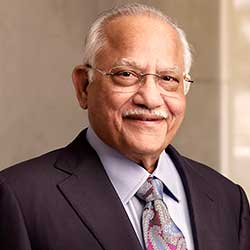
Dr Prathap C. Reddy, Chairman, Apollo Hospitals Group
“This year the budget has truly put the spotlight n key issues facing the nation as it emerges from two years of the pandemic. The Union Budget 2022 moves to address the pressing needs with announcements that will act as an emollient not just for the economy but also the people. The budget with its digital push in education and skilling for all shows that it has its heart in the right place.
“During the pandemic, we saw an immense contribution of start-ups to innovation in healthcare and the extension of the tax benefits for another year should encourage more start-ups in the healthtech space to come up and invest in R&D especially in the field of AI powered smart wearables and predictive healthcare. This will in turn be invaluable in strengthening our fight against non-communicable diseases, which can otherwise derail the economic recovery by impacting our productive demographic.
“The budget keeps us on track on enabling universal health accessibility with the proposed National Digital Health Ecosystem. With digital registries of health providers and health facilities, unique health identity for each individual, this will help in providing universal access to health facilities. Along with the national tele-mental health program, this shows the enhanced focus on health. At Apollo Hospitals, we look forward to contributing to the success of these path-breaking initiatives along with rest of the private sector healthcare.”

Naresh Trehan, Chairman & Managing Director, Medanta
“If you look at the budget, there is a very little mention of healthcare in the budget, it occupies very little attention. Skilling is getting intensified which is good because we need a lot of skilled manpower to assist with the healthcare delivery system. The second thing is the National Health Registry, which also provides a full platform for everybody to be able to network and to know what is the state of our infrastructure is, what is the ability of the healthcare, that will help a lot. The third issue addressed was the mental health problem. It is true that in the pandemic, a lot of people have suffered at that, then a mechanism for mental health will definitely help. But beyond that, none of the other issues were addressed in this budget. Finance Minister mentioned that we have a robust health system since we survived the pandemic. It has become strong and all that is true, but the question is that is it future-ready?
What is required? a robust infrastructure is required. It needs to be advanced and it needs to be renewed. We need high care tertiary hospitals to deal with pandemics like these. At some level, the smaller hospitals can handle the caseload. But you saw what happened in the second wave. The point is that we need to be able to advance the metro hospitals. We need financing at the national level. We need to expand new technologies and research”.
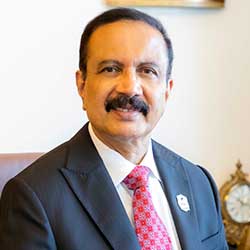
Dr Azad Moopen, Founder Chairman and Managing Director, Aster DM Healthcare
“Digital registries of health providers and health facilities, unique health identity and universal access to health facilities under the National Digital Health Mission are positive steps towards enabling access to healthcare for the wider population. Similarly, we are glad that mental health and the challenges put forward by the pandemic are being tackled at a National level with the launch of Tele-Mental Health Programme. Upgrade of 2 lakh Anganwadis with better facilities will further enable the primary healthcare system and much needed healthcare support in remote & rural areas.
While it is good to see that the focus on Digitisation, Sustainability, Energy Conservation and Development of Infrastructure has taken a clear precedence in Union Budget 2022, the allocation towards Healthcare is not to the level we anticipated. Coming out of the shadows of the pandemic, it is most important to allocate at least 3% of the Budget to healthcare”.
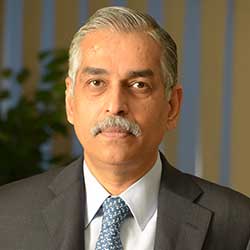
Dr Ashutosh Raghuvanshi, MD & CEO, Fortis Healthcare Ltd.
“It is very encouraging to see the Government’s attention on mental health of the citizens. The proposed National Tele-mental Programme will prove to be beneficial for a large section of the society, enabling access to quality mental health counselling. The announcement regarding upgradation of 2 lakh Angadwadis and the rolling out of the digital health mission will also help in providing greater access to healthcare services and strengthen capacities. Digital health ecosystem is an area where we would have appreciated some more allocation, especially the National Digital Health ID initiative. Of course, as the programme is a long-term one, I am sure that funds will be made available in the future. That apart, the special status given to data centres is going to have an impact on the digitalization of the healthcare ecosystem, both from the insurers’ as well as the providers’ perspective. I think these are very positive outcomes from the health perspective. As the healthcare sector has been at the forefront of battling the COVID pandemic, it would have been great if certain allocations were enhanced”.

Ameera Shah, Promoter & Managing Director, Metropolis Healthcare Ltd.
“India’s growth is estimated to be at 9.27% as mentioned by the honorable Finance Minister of India and it is assuring to see the government’s focus towards women, youth, and rural development. Moreover, in the tough times of pandemic, a strong vaccination campaign, ‘sabka prayas’, has been fruitful to combat the present Omicron wave. I am sure the healthcare system shall hold the fort of public health in the coming times as well.
Much-needed attention is given to ease of access to healthcare services through an open platform of National Digital Health Ecosystem. The aspects of digital registries of health providers and health facilities, unique health identity and universal access to health facilities should be helpful to align services to demands efficiently. Rightfully adding to this, educational institutions of Bengaluru consisting of the best talents and minds shall be the technical arm.
The initiative taken for Mental Health is welcomed by the healthcare industry. Irrespective of age, gender, and occupation the need for focus on mental health is necessary given the current situation. The National Tele Mental Health program is a positive step to support national mental health counselling and care services.
Moreover, Ministry of Women and Child Development, through their Saksham Anganwadi keep Women and child development at forefront in terms of health, nutrition and required infrastructure. This shall increase the quality of life of our citizens comprehensively. Greater fund and resource allocation to enhancing the healthcare infrastructure both in urban areas as well as in tier 2-3 towns have been prioritized.
The budget also highlighted the importance of Genomics and AI aptly in future. However, a larger push to overall infrastructure, manpower and investments in Public-Private Partnerships which can help in further strengthening the healthcare ecosystem in the country remains undiscussed.”
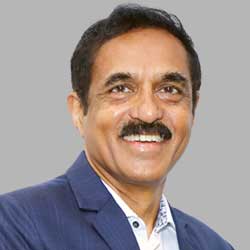
Dr BS Ajaikumar, Executive Chairman, HealthCare Global Enterprises Limited
“I was happy to note the government decision to launch a national Tele Mental Health Program. The open program for the National Digital Health ecosystem is a welcome step given the widespread devastation caused by the Covid-19 pandemic, especially on the mental health of people across all age groups, from kids to senior citizens. Of course, much will depend on the quality of its implementation in equitably providing counselling and care services to people across the length and breadth of the country. Another welcome move is the decision to provide tax relief for the differently-abled and their dependents. Having said that, it was disappointing not to hear of any announcement on many critical areas facing the healthcare industry, like the urgent need to raise healthcare expenditure to at least around 2.5% of GDP. Given the chronic issues facing healthcare in India, the 1.8 percent falls short of addressing the lingering challenges on the ground. We also need a universal health coverage to enforce uniformity of treatment through cross subsidy, devoid of financial strain and debt traps for the economically challenged. I was also expecting heartening policy measures on many other key issues; like the investments in tech-enabled systems using predictive genomics to fight the evolving mutations and likelihood of newer microorganisms, rationalisation of the tax structure around life-saving drugs and emergency treatments, as also lowering of GST slabs and raising of tax deduction limits that are imperative to serve the larger cause of insurance”.
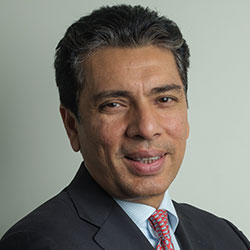
Vishal Bali, Executive Chairman, Asia Healthcare Holdings
“Budget 2023 focuses on key pillars of Capex led growth, enablement of the entrepreneurial ecosystem, and controlling fiscal deficit. If executed well, an increase in the capital outlay of INR 7.5 Lacs crores can kick start the economic engine. The budget is silent on the increase in public expenditure on healthcare and the path to 2.5% of GDP spent on healthcare which is the much-needed reform path for this sector and enablement of healthcare access to India. However, The focus on digital healthcare with the National Digital Health Ecosystem is a welcome move that will include digital registries of health professionals and facilities, a unique health identity, and help strengthen the foundation of universal access to health care facilities. The announcement of a national telemedicine-led mental health program with a network of 23 telemental health centers, with Nimhans serving as the nodal centers is also a step in the right direction. However, reform in paramedical education for faster enablement of clinical/paraclinical talent is still not addressed. While the FM led Budget 21 made healthcare a central subject, Budget 22 does lack continuity of that vision.”
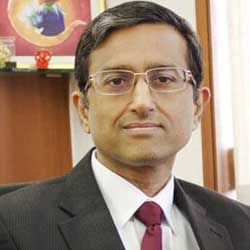
Gautam Khanna, CEO, P.D. Hinduja Hospital & MRC, Mumbai
“I am happy that Union Budget 2022 has focused on the need of the hour that is mental health with the launch of the National Tele-Mental Health program. As an increasingly larger number of people are being diagnosed with depression, having an open discussion and a platform providing universal access to mental health facilities is welcome step.
We all have witnessed how healthcare digitalization has taken a new turn in the pandemic and have realized that it is the future. Digitalization has had a massive impact, especially in delivering quality health services by providing solutions like telemedicine. Implementing a holistic platform with a unique health identity, consent framework, and digital health registries will create a space for efficiency in delivering precise treatments and maintaining consistent health records.
As per the pre economic budget survey, it is promising to see that the government has conducted over 2.2 crore teleconsultations so far through government’s e- sanjeevani portal. The increased focus on digitalisation will help the delivery of healthcare to the masses.
The AB-PMJAY, which was launched in 2018, is a potential game-changer of Healthcare services in our country. Over 17.5 crores Ayushman Cards have been issued already and hospital admissions worth 30673 crore have been provided through a network of 25000 hospitals that includes private and public. The country is looking forward to a similar insurance scheme for the middle class too.
Being a progressive and futuristic budget, we would have liked a concrete commitment towards increasing government expenditure to 2-5% – 3% of GDP to ensure a healthy India. Furthermore, measures announced in the last budget need to be fully implemented, like the operationalizing of the Ayushman Bharat wellness centres.
In addition, we are currently facing the after-effects of the pandemic, our expectations from Budget 2022 would have been actions that would strengthen the country’s healthcare system. Therefore, we urge the Finance Minister to announce incentives for Hospital expansions under the infrastructure category and some incentives for medical research. There is a need for Long term financing for the sector as it is classified as an Infrastructure sector but does not get long term loans which inhibit investments in growing the physical infrastructure required for the country.
Covid – 19 brought the importance of communicable diseases and the preventive measures we should be taking. However, our country needs a lot more focus on Preventive health as the threat of Non Communicable diseases is increasing. So some incentive for preventive health was needed.
More incentives should also be directed towards R&D to encourage upskilling in the healthcare fraternity. Steps on these areas were missing in the budget speech, and we need to see if they have been included in the detailed budget document”.

Navneet Bali, Regional Director, Narayana Health (North Region)
“The only way to democratize healthcare is to make it accessible which is clearly seen in the budgetary push through telehealth and the digital health ecosystem. The benefits seem to be given to the much needed rural sections which lack physical infra and superspecialist doctors – while the urban population has easy access and spending capability at high end private healthcare institutions, the rural segment lack both which could be addressed through detailed healthcare budget allocations. Healthcare accessibility in Rural areas Is clearly seen as the long term aim of the government is a welcome step which is seen through digital adoption. There has been a lot of talk of mental health during Covid. The government has taken cognizance and planned setting up 23 Mental Health Centers which is a much appreciated step in the right direction”.
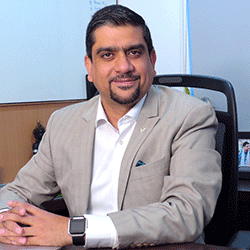
Vikram Thaploo, CEO, Apollo Telehealth (A unit of Apollo Hospitals Group)
“The government in its last Union budget had placed health and well-being as the first of its six pillars, and with India into its third year into the Covid-19 pandemic, that focus has reflected in this year’s Union Budget as well. The launch of the National Tele Mental Health Program which will include a network of 23 tele mental health centres of excellence with Nimhans being the nodal centre and IIIT Bangalore providing technology support is a welcome move by the government to augment the use of telemedicine services as well as provide support to people with mental health disorders. Also, an open platform for the National Digital Health Ecosystem will be rolled out and it’ll further help in strengthening the healthcare services within the country. It will consist of digital registries of health providers and health facilities, unique health identity and universal access to health facilities. The increased investment toward health infrastructure and focus on a holistic approach to health is seen as a testimony of the commitment to building stronger health systems in the country.”

A Ganesan, Group Vice Chairman, Neuberg Diagnostics
“Reduction of sur-charge to 12% on Long Term capital Gains is welcome step.
Unintentional errors in Income Tax can be corrected by filing updated return within 2 years from the end of Assessment year – This is a positive change.
Department to wait before filing an appeal in higher court in respect of disputes of similar nature with regard to interpretation of law , in case cases of similar nature are pending in Supreme court / other courts – This is also a very good step.
Significant increase in Capital expenditure allocation by almost 35% will probably spur economic growth and create jobs.
Extension of emergency credit guarantee scheme till 31/03/2023 is a step in the right direction.
National Digital Health Ecosystem, National Tele Mental Health Program – Very god initiatives if implemented well.”

Kiran Mazumdar Shaw, Chairperson, Biocon & Biocon Biologics
“Finance Minister Nirmala Sitharaman’s Budget for FY23 is well balanced with fiscal prudence and ‘ease of doing business’ as the main themes. I believe the 35% increase in capital expenditure for FY23 is positive and will drive the creation of much-needed infrastructure and jobs. The FM must also be commended for maintaining the fiscal deficit at 6.9% of GDP in FY22. The Budget’s focus on ensuring regulatory ease by promoting digital trust and digital compliance steps in the right direction. We were expecting some incentives for Pharma R&D in the Budget as public investment is very low in this critical area of research and innovation, which are key for spurring exponential economic growth. The FM has assured the government’s support for R&D expenditure in sunrise areas such as drones, AI, genomics, space, clean energy, etc. We will need to see the fine print if there is anything on pharma. The only concern I have is the absence of any fiscal stimulus for the MSME & Services sector that has borne the brunt of the pandemic with large layoffs and job losses reflected in a sharp drop in rural and semi-urban consumption. The government will need to address this urgently. Overall, it was a positive Budget without any negative surprises.”
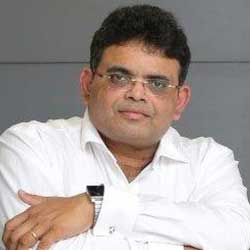
Thomas John, MD, Agappe
“The Budget for the year has been based on a vision for the next 25 years of ‘Amrit Kaal’ and with the objective of all-inclusive growth, technology enabled development and energy transition and financing of investments. With fiscal deficit being at 6.9 percent (PY-9.2 percent) for the current year and a target of 6.4 percent for the next year, and with a longer term objective to bring it down to 4.5 percent, the budget has been a very prudent.
The total Expenditure budgeted for the fiscal year 2022-23 is at Rs 39.44 Lakh crore. The budgeted expenditure on health in the Union Budget for 2022-23 is at Rs 86,066 crore up from the budget estimates of 2020-21 by 15 percent and further based on the current revised estimates of 2020-21 of Rs 85,915 crore the increase is only marginal. However, we have seen in the past year that the government has adopted a multi-pronged approach to fight the pandemic which included building health care infrastructure, scaling up testing and vaccination drives and has been adopting an agile approach for many policy decisions relying on the high frequency indicators. The present budget seems to consistent with the National Health Policy, 2017 which envisaged government’s (both State and Central) health expenditure to be at 2.5 percent of the GDP. For the fiscal year 2020-21 the combined health expenditure (for both State and Central government) had reached 2.1 percent of the GDP.
The National Digital Health Ecosystem is being planned to be rolled out in 2022-23, the system will consist of digital registries of health providers and health facilities, unique health identity and universal access to health facilities, this will eventually help in mitigating to a large extent the information asymmetry in the health care sector. The National Tele Mental Health for quality counselling is also a very welcome step The Tele Mental Health will be operated under a network of twenty-three mental health centres of excellence under the country’s premier mental health institute NIMHANS. This will help in accessing quality mental health counselling and services anywhere in India.
The review of customs rate simplification and the proposal for calibrating the custom duty rates to provide a graded rate structure to facilitate domestic electronics manufacturing is a welcome step for the domestic medical devices manufacturers”.
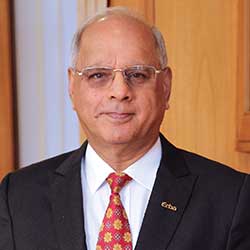
Suresh Vazirani, Founder Chairman, Transasia-Erba International Group of Companies
“As India celebrates ‘Azadi ka Amrit Mohatsav’, the union budget created a blueprint for India’s sustainable development and laid a vision for India @100 years. The proposal to focus on developing tier II and III cities will lead to more balanced development. We also welcome the announcement regarding digital payments.
For the healthcare sector, the budget emphasized on creating an open platform for the National Digital Health Ecosystem, consisting of digital registries of health providers and health facilities, unique health identity and universal access to health facilities.
Further, the government’s focus on digitization in healthcare, should give rise to integration of digital technologies such as AI/ML in the equipment and digital data management. In the long run, it will bridge the gap between physicians and patients or between two physicians, especially in remote areas.
From a manufacturers’ perspective, our Finance Minister announced a soon-to-be-introduced new legislation which will replace the Special Economic Zones Act. This is anticipated to give a boost to the development of enterprises and hubs and enhance competitiveness of exports. Hopefully, there will be a lot in store for the Indian manufacturers of medical devices and will give a further push to Making in India for the World.
However, the medical devices industry was looking forward to some crucial reforms to encourage Make in India efforts for affordable healthcare at these times of the pandemic. In that respect this budget has given very confusing signals. On one side, it is good that several duty exemptions have been done away with. But on the other side, on several medical devices, the import duty has been reduced. That will surely kill their local manufacturers. Is that what the Hon. FM wanted?
The diagnostic industry especially was hopeful that the government would announce an increase in the PLI for the industry from current insignificant rate of 3-5 percent to 15 percent. This would have made Indian manufacturers globally competitive, attract investment in the areas of core competency and cutting-edge technology; ensure efficiencies; create economies of scale; enhance exports.
I reiterate that making healthcare affordable for citizens needs Government support. And this can only be possible through Make in India medical devices.
As an industry leader, I had expected more emphasis to be given to the healthcare sector in the Union Budget and some reforms to be made such as reduction in GST, introduction of a Development Linked Incentive (DLI) to encourage R&D and reduction in the import duty on raw materials.”
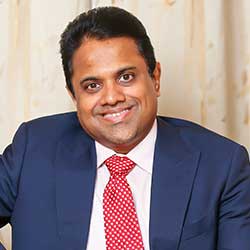
Dr GSK Velu, Chairman & Managing Director, Trivitron Healthcare and Neuberg Diagnostics
“As expected, Budget 22-23 was a balanced effort to improve overall economic growth. Today, the healthcare sector in India is at a much stronger position than ever before. Measures introduced in Budget 2022-23 will further strengthen the healthcare sector while focusing on prevailing challenges.
The rollout of a National Digital Health Ecosystem will ensure that all segments of the society are able to access affordable and adequate healthcare in a seamless and efficient manner. Such an ecosystem can potentially make universal healthcare a reality for India.
Further, the fact that mental health counselling and care services found a place in the budget is a testament to how far we have come as a country. Inarguably, the Covid pandemic has adversely affected the mental health of the population at large. Thus, the launch of a National Tele Mental Health program can play a catalytic role in both normalising conversations around mental health as well as ensuring that people are able to seek support for mental health related challenges.
Though there was not much for the medical devices industry directly in the Budget, the industry will benefit from the Government’s increased focus on healthcare. The National healthcare mission outlay has been kept at Rs. ~37,000 crore like previous year and this is a bit disappointing, considering the fact our healthcare infrastructure needs big boost in the coming years. The demand from all healthcare experts was to increase healthcare outlay in the current budget”.

Jatin Mahajan, MD, J Mitra & Co and Jt Coordinator (IVD), AiMeD
“We are dismayed by the Union Budget 2022 completely overlooking the fair expectations of the MedTech industry.
There has been a lot of focus on future-speak – with elaborate mentions of digital and infrastructure, but the existing concerns of MedTech industry have been completely neglected.
The diagnostics industry forms the backbone of the fight against the pandemic, and accounts for 70 percent of all therapeutic decisions. And yet, the following long-standing woes have not been addressed in spite of yearly promises
-
Current Custom duty structure designed to favour imports
-
Inverted duty structure, which is higher for raw materials and lower for finished goods – favouring finished goods import instead of import of raw material and domestic production.
-
Rational reduction of GST from 18 pc to 12 pc, considering we are essential services and not luxury services
The existing policies continue to favour import of MedTech solutions. It is against the much-hyped Aatmanirbhar Bharat agenda, and this will continue to keep us dependent on foreign MedTech products.
The budget is absolutely silent on ways and policies to boost domestic R&D in MedTech/healthcare segment.
As a nation, we are currently 80 percent dependent on imported MedTech solutions (accounting for imports worth Rs. 4600 crore), and there has been no move to change this dependency. We are unable to boost domestic jobs and earn foreign exchange. We actually have the potential to emerge as a strong global manufacturing hub for the MedTech segment.
The overall healthcare allocation has been increased to Rs. 2.23 lakh crore, and more details are still awaited to provide any clarity on how (and if), they will have any impact on the MedTech industry.”.

Sapna Soni, Head – Government, Regulatory Affairs & PR, Mindray Medical India Pvt. Ltd
“We congratulate the government on such a dynamic budget which aims to democratize healthcare and make it more accessible. An overall visionary budget which continues to drive healthcare penetration underpinned by the technology thrust especially the national digital health mission. The National Mental Tele Health is a much appreciated move, given rise of pandemic related mental health issues. While not much has been said for medical devices sector, it is encouraging to see the government focusing on the PPP model and digital healthcare for ensuring healthcare services in Tier 2-3 and rural locations.
We at Mindray with a vision of better healthcare for all and mission of advance medical technologies to make healthcare more accessible – congratulate the government in this digital healthcare drive.
We hope to make significant contributions to same, by developing more sophisticated medical devices, supporting the government in all its endeavors and continue be the ‘trusted partner for Healthier Bharat.”
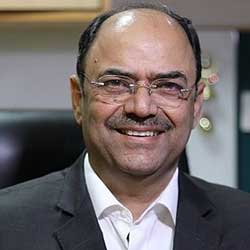
Sunil Khurana, CEO & MD, BPL Medical Technologies Pvt Ltd
“The recent budget overall was a very coordinated effort by the Government for economic growth of India. It makes me proud of how far along India has progressed in the health care segment, and the budget 2022 proves just that, with the primary focus of the budget speech being on digitization of the health care sector and addressing issues arising due to poor mental health of our citizens, right from senior citizens to young teens – which is a much-appreciated step by the government.
Coming to the MedTech sector, sadly the budget announcement did not cover some critical pain areas which our industry is presently facing; an increase in the health care expenditure in terms of % of GDP being one of them and there was no mention.
In addition, the budget speech did not cover a well-crafted strategy to promote domestic manufacturing of critical live-saving medical equipment & devices as well as export promotion. Also, a expected raise of import duty on medical device categories which are already being made in the country to accelerated the “Make in India” drive of GOI – a step towards Atmanirbhar Bharat.
It was welcome assurances that there will be government support towards R&D for the sunrise industry beyond the academia and policies support to promote make in india initiative.
Since the healthcare industry as a whole is fiercely fighting against the pandemic at the forefront, it would’ve been encouraging if the budget enhanced allocations in certain key areas as well.
Presented Budget’22 has failed to keep up with the assurances those were outlined in last year’s budget to bring healthcare to the next level. So overall this budget is dampener to the domestic medical device industry to go all out towards Atam Nirbhar approach and seriously lagged in consistent messaging.”
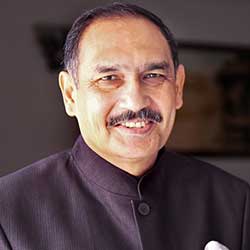
Dr Harsh Mahajan, President, NATHEALTH
“The speedy roll-out of the digital health mission, move towards provision of unique health identity, upgradation of two lakh angadwadis, alignment of national skill framework with industry needs and value-based procurement augurs well for modernization of healthcare in the post-pandemic era. The launch of the tele-mental program has brought mental health issues to the forefront which will better the access to quality mental health counselling. Focus on promoting R& D in the field of Artificial Intelligence, Genome sequencing and Pharma is a much-needed demand being fulfilled. We congratulate the Government on record GST mobilization, however, the embedded credit issue in healthcare sector still remains unaddressed, and we hope to soon find a viable solution acceptable to the Govt. Greater fund and resource allocation for strengthening healthcare infrastructure not only in urban areas but also in tier 2-3 towns has always been a focus of the Govt. and this would be taken forward keeping quality of care and financial viability in mind.
There is also a need to create fiscal incentives for investments/PPP in both hospital and out-of-hospital delivery models like telemedicine, home care, senior care and long-term care. We request the Govt to consider lowering cost of financing capital, free flow of credit into the sector especially for the build-up of new infra and capacity and continue investment in incentivising capacity build-up of supply side levers through PPP like medical education, diagnostic and device manufacturing.”

Rajiv Nath, Forum Coordinator, Association of Indian Medical Device Industry (AiMeD)
“We were expecting the government to move forward on promised reforms and anticipated conducive measures to boost domestic manufacturing of medical devices. It is frustrating that against our expectations, the government has not included any measures to help end the 80-85% import dependence forced upon India and an ever increasing import bill of over Rs. 46000 crore and promoting growth Indian medical device industry other than repeating last year’s assurance to end custom exemptions of products that can be made in India.
Sadly the union budget 2022 speech has no strategic stated measures to boost domestic manufacturing. These are the same domestic manufacturers, when imports got disrupted during COVID-19 crisis, the government relied heavily on them to meet the rising demand of essential Covid items for the country pushing the Indian medical devices sector to become self-reliant.
The Indian medical devices industry’s expectations were:
-
Predictable tariff policy.
-
Graded increase of custom duty to 10-15% from current zero to 7.5%.
-
Reduced GST on 18% where being applied to 12% as medical devices are not luxury goods.
-
Not clear if Health Cess applied on some medical devices being also applied on other medical devices.
-
No announcement on R&D related tax breaks to motivate indigenous development.
We had been hoping that this will be a Make in India push budget for an Atmanirbhar Bharat and though the FM has highlighted the need to support manufacturing sector. We, the Indian medical device industry, are disheartened not to notice any changes in custom duty as done for other sectors and are very hopeful that the fine print of the Union Budget would have possibly acted upon our recommendations on a Predictable Tariff Policy for a Make in India push for phased manufacturing plan for components and finished medical devices and allocations for testing infrastructure as well as for MedTech parks and cluster developments. Supporting policies are needed so that Indian medical devices industry can make quality healthcare accessible and affordable for common masses, aim to place India among the top 5 medical devices manufacturing hubs worldwide and help end the 80-85% import dependence forced upon us and an ever increasing import bill of over Rs. 46000 crore.
The only positive announcement was on Public Procurement by allowing 75% prompt payments and bringing in a weighted price preference on account of quality which is especially critical in healthcare related medical devices.”
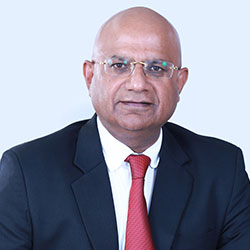
Dr Alok Roy, Member, FICCI, Health Services Committee and Chairman Medica Group of Hospitals
“India Inc. and especially the healthcare industry which has been battling Covid-19 pandemic since last 2 years was expecting more investment on public health and healthcare infrastructure from this year’s union budget. The budget has just focused on mental health and digitization of healthcare sector. The very fact that Government has focused on digital healthcare shows that finally healthcare sector is being considered as the prerequisite to ensure economic well-being of the country. Budget 2022-23 seems very disappointing for the healthcare sector. India’s growth is estimated to be at 9.27 percent and healthcare will play a major role in the boost. Strengthening of health infrastructure, speedy vaccination programme implementation has strengthened the Indian healthcare system. The decision to start an open platform for the national digital health ecosystem is a welcome move. The emphasis to roll out digital registries of health providers, health facilities, unique identity consent framework with and universal access to health facilities will add more values to Ayushman Bharat Digital Mission. We the healthcare providers heartily welcome the Government’s focus on mental health issues as this has set an alarm across age groups post the COVID pandemic. The announcement of launching the national tele mental health program which will include a network of 23 telemedicine mental health centers of excellence is a much appreciative move that the government has decided.
It was expected the government to look at increasing the healthcare expenditure above 2.5 per cent of the GDP but there was not adequate attention paid to it. Although there had been a rise of 137% allocation in healthcare sector last year much was fulfilled in reality by the government. Overall, the proposals made in the Budget 22-23, should have made quality healthcare accessible and affordable. The government should have focused more on primary healthcare investment and made the Healthcare system as National Priority’ status, as was done for the IT sector”.
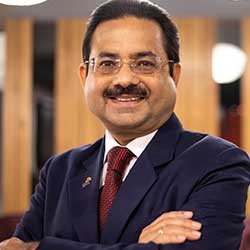
Dr Rana Mehta, Partner and Leader Healthcare, PwC India
“The pandemic has caused a silent global mental health epidemic. The use of telemedicine to diagnose and treat such patients has proved to be highly effective given the unobtrusive nature of the interaction which also ensures patient privacy. Given the shortage of mental health professionals, especially in rural areas, telemedicine will greatly enhance accessibility for patients requiring psychiatric help.”

Dinesh Chauhan, CEO, CORE Diagnostics
“We congratulate the government for presenting a dynamic budget with a major focus on strengthening the healthcare sector. Budget 22 is visionary and focused on implementing major steps to revitalize the healthcare industry including driving healthcare penetration underpinned by technology thrust and access. The national digital health ecosystem is a strong move to enable equitable access to healthcare services as well as towards creating a robust healthcare ecosystem. The introduction of National Tele Mental health to access quality mental health services is a much-appreciated move, considering the rise of pandemic accentuated mental health problems in India. While there has been no significant announcement related to the Diagnostics sector, it is encouraging to see the government focusing on the PPP model and digital health which will further ensure accessibility and availability of quality healthcare services in remote locations. We will continue to bring significant change in the diagnostics space with our continued investments in developing sophisticated diagnostics for early detection and outcome-based line of treatment for patients.”
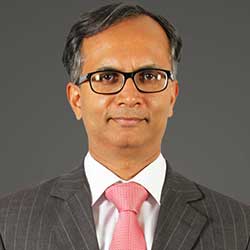
Rohitashwa Prasad, Partner, J Sagar Associates
“For FY 21 GoI had budgeted Rs. 69,000 crore for healthcare, which was 1.6% of GDP. The budgeted amount for FY 22 shows a significant increase. If this growth were to be extrapolated, the GoI should achieve the target of healthcare spend of 2.5 – 3% of GDP (as envisaged in the National Health Policy 2017) well before its target date. This is quite promising and clearly illustrates the importance that the GoI is placing on the sector spurred by the Covid pandemic. What is also very commendable is that the GoI has allocated Rs. 35,000 crore for the Covid vaccine as a separate line time. This shows that the GoI has avoided the pitfall of focussing all its resources on tackling communicable diseases at the cost of building healthcare systems generally because of the Covid pandemic, which notwithstanding its materially adverse impact on the health and economy, is an extraordinary event. The GoI has thus avoided the saliency bias which the Economic Survey had warned against.”
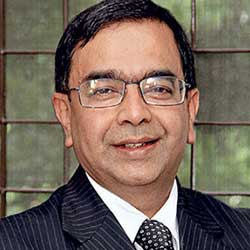
K Srinath Reddy, President of Public Health Foundation of India
“Within the health sector itself, the increases have been less than expected. With an allocation of Rs 37,000 crore, the National Health Mission received an increase of 7% over last year’s expenditure. The need to galvanise the slow-paced urban health mission and strengthen rural primary healthcare across the country calls for higher allocations. Health workforce expansion in primary care is especially urgent in view of the plan to expand services through health and wellness centres. Allocation for the Pradhan Mantri Jan Arogya Yojana (PMJAY) is static at Rs 6,412 crore, as the allocations remained substantially under-utilised in the past two years. Total allocation for the health infrastructure mission is Rs 5,156 crore, which is surprising since the scheme is designed to spend Rs 64,180 crore over a six-year period and spent only Rs 900 crore since its launch in October last year. AYUSH gets a 14.5% increase, while Swasthya Suraksha Yojana, which focuses on expansion of tertiary care infrastructure, gets a 35.1% increase. The department of health research has been allocated Rs 3,200.65 crore, which represents a rise of 3.9 %. Given the need for strong impetus to scale up research in both communicable, non-communicable and nutrition-related disorders as relevant to the Indian context and also extend health systems research into implementation and evaluation research related to national health programmes, this is less than anticipated.”

Dr Ravi Gaur, Founder, DRG Path labs
“The pandemic has caused a fair amount of silent mental health issues. Thus the mental health component of the budget is definitely a welcome step. Continued focus on skill initiatives, tele-health & other digital services will provide much needed boost to the accessibility of healthcare especially in the remote geographies. The announcement of tax reduction for people with disabilities is another positive step. The government should have focused more on primary healthcare investment in preventive health care on priority. A strong push for augmenting tertiary care hospitals, upgrading the existing services and research investments were definitely expected for future readiness. The budget does not hold much to other required essential services in the healthcare sector, including the crucial medical devices and diagnostic industry, which has played a very crucial role in tackling the pandemic. We were definitely expecting a big push toward healthcare spending, at least to the promise of 3 percent of the GDP. Unfortunately, this still looks a bit of a distant task”.
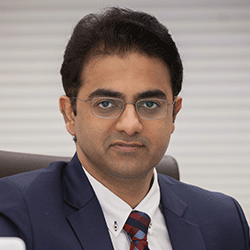
Dr Aashish Chaudhry, Managing Director, Aakash Healthcare (Aakash Institute group)
“We are happy with the decision to create an open platform for the National Digital Health Ecosystem. This will include digital registers of health professionals and facilities, a unique health identity, and universal access to health care facilities. The pandemic has brought the subject of mental health to the forefront. For this, the government has announced a national telemental health programme. This would include a network of 23 excellence telemental health centres, with Nimhans serving as the nodal centre and IIIT Bangalore providing technical support. This would undoubtedly improve access to high-quality mental health counselling and treatment services.”
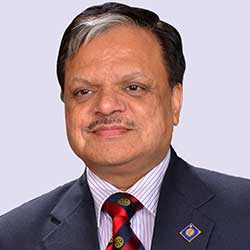
Dr Rakesh Gupta, Chairman, Sarvodaya Hospital, Sector 8, Faridabad
“A bold budget that lays down a 25-year roadmap for India to become a truly digital economy. The announcement regarding establishment of National Digital Health Ecosystem is significant. It will make the health sector much more efficient and bring it into the modern age. Mental health has emerged as a silent epidemic in the last few years. Setting up a national tele mental health program to provide counselling and support to patients fulfills an urgent, long-felt need of an overlooked health challenge. Upgrading two lakh anganwadis with better infrastructure will have a positive effect on child health. There is no significant increase in budgetary allocation to health for FY 22-23, which is a bit disappointing considering how the Indian healthcare system struggled to meet the challenge of the epidemic. However, all in all, it is a very well thought out budget that will have a positive impact on the digital and health infrastructure of the country.”

Dr Alok Khullar, CEO, Gleneagles Global Health City, Chennai
“The impetus given to the healthcare structure in the last 2 years has benefitted the sector. In today’s budget, the focus on infrastructural development is bound to spur growth and enable accessibility for more people. It is imperative that healthcare infrastructure grows alongside the overall infrastructural development of the country. There is still a need for focused skill development for various healthcare needs which the budget failed to address. The impetus given to manufacturing sector can facilitate setting up manufacturing units for healthcare devices and equipment in India, thus, reducing the end cost. While the pandemic has unfolded many aspects of healthcare, a lot of mental health problems across all age groups were also witnessed. We welcome the budget’s focus to implement a ‘National Tele Mental Health Programme’ to address the mental health problems and provide counselling & care services. This will create more awareness and also open more avenues in the overall health & wellbeing of an individual. Additionally, the budget aims to roll out a National Digital Health Ecosystem which comes in as a blessing for the public where digital registries of health providers and health facilities, unique health identity, consent framework, and universal access to health facilities will be made available.”

Sanjiv Navangul, Managing Director & CEO, Bharat Serums and Vaccines Ltd.
“We are encouraged by the recently announced roll out of the open National Digital Health Ecosystem platform that will further augment our country’s digital healthcare journey and create positive patient outcomes with digital registries of health providers and health facilities, unique health identity, consent framework and universal access to health facilities. As the country moves towards good health and economic well-being, it is critical to continue to innovate in India and the rest of the world. Today, the booming biotech innovation across the globe along with the accelerated adoption of digital technologies has redefined the contours of healthcare management. To build and grow the research-driven biopharmaceutical industry in India we continue to seek an enabling, supportive regulatory and policy framework that encourages and promotes research in order to bring positive patient outcomes.
Further the Union Budget 2022 outlines ‘Genomics and Pharmaceuticals’ as the sunrise opportunities eligible for a supportive framework to build domestic capacities and promote Research & Development. This is encouraging as we collectively work towards building an Aatmanirbhar Bharat and an ‘Amrit Kal’ for every citizen of the country.”

Dr Dilip Kamat, Senior Medical Administrator, Amrita Hospital, Kochi
“There was an expectation of significant increase in the budgetary allocation to health for the FY 22-23 in face of the impact of the pandemic. However, in pure monetary terms there is no major outlay to Healthcare sector per se. The allocation as a percentage of the GDP doesn’t appear to have changed. The focus has continued to remain on aligning various other sectors to achieve public health goals. The development of public health infrastructure and development of skilled healthcare professionals to meet the healthcare needs of the growing population of India doesn’t find a mention in the Budget. This is disappointing in a way as these were badly exposed during the Covid-19 pandemic, especially during the second wave. Budgetary allocation for the development of the National Digital ecosystem and National Tele Mental Health Program can be termed as positives from this Budget Speech by the Honorable Finance Minister. With regards to the Private Health Sector, I don’t see any additional Tax benefits or leeway being given by the Government.”
For Finance Minister’s Speech, Union Budget 2022-2023 click.
MB Bureau














